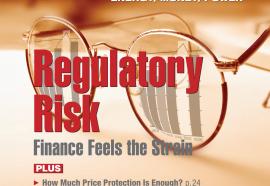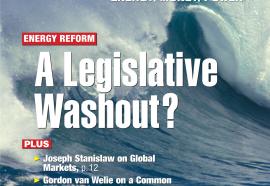Recession Reprieve
An economic slowdown might buy time for regulatory change.
Last month’s “Frontlines” column invoked the dreaded “R” word: “recession.” In what turned out to be Executive Editor Richard Stavros’s final column in this space (Richard left the Fortnightly in September to join Dominion Resources in Richmond, Va.), he suggested the industry’s fortunes might actually benefit from an economic downturn, as Wall Street money flees toward defensive investments.









